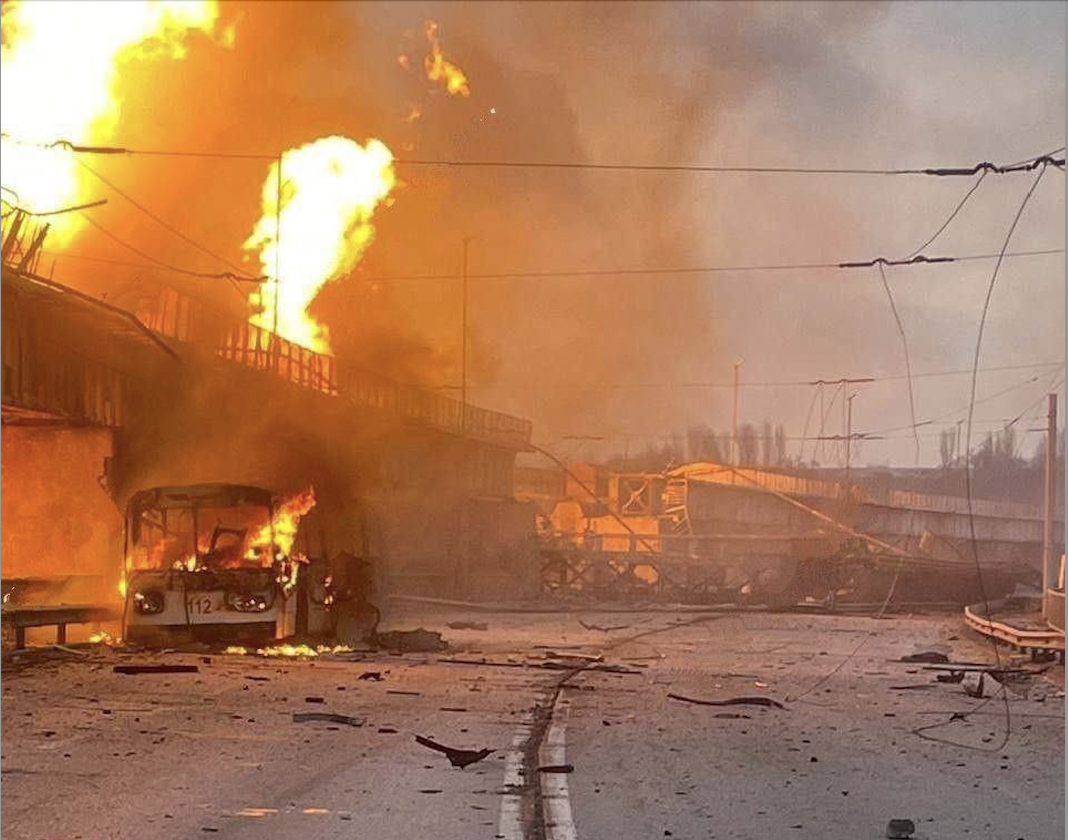Naftogaz: Ukraine's gas supply not impacted by Russian strike

Ukraine’s gas supply has not been affected by a Russian attack that damaged an underground gas storage (UGS) facility in western Ukraine, the CEO of the state-run Naftogaz energy company Oleksiy Chernyshov said on March 24.
The facility, operated by Naftogaz’s subsidiary Ukrtransgaz, will require repairs to its surface infrastructure, but the attack did not impede its operations due to the gas being stored deep underground, Chernyshov noted.
“We have sufficient backup capacities in place to mitigate any immediate impacts. The supply of natural gas to Ukrainian consumers remains unaffected by the attack,” he wrote on Facebook.
Ukraine has been encouraging foreign traders to store gas in its vast UGS facilities, the majority of which are located in western Ukraine.
Before the full-scale invasion, Ukraine offered up to 10 billion cubic meters (bcm) of storage to foreign traders. After initial hesitancy in the first year of the invasion, foreign traders returned in 2023 motivated by competitive storage tariffs, and rented 2.5 bcm of storage space last year.
Foreign traders have already started injecting gas into Ukraine over a month earlier than expected, Naftogaz told the Kyiv Independent in early March.
Ukraine is aiming to attract 4 bcm of gas from foreign traders this year, Naftogaz announced on March 21.
The country’s UGS facilities have a capacity of 30 bcm, the largest in Europe. Ukraine is eager to utilize its facilities for European gas companies and contribute to the continent’s energy security.
Chernyshov previously told the Kyiv Independent that its UGS facilities are largely safe due to being deep underground.
Russia continues to target Ukraine’s critical infrastructure with several mass attacks on the energy system in the last three days.
The latest attacks on March 22 and 24 caused 90-100 million euros ($97-108 million) in damages, national grid operator Ukrenergo CEO Volodymyr Kudrytskyi said on Facebook.
The Energy Ministry also reported on March 24 that Ukraine was increasing imports of electricity and halting exports as a result of the attacks. "For the current day, electricity imports are forecast at 14,900 megawatt hours (MWh). No exports are expected," the ministry wrote.
The day before, the Energy Ministry expected 12,784 MWh of imports and exports of up to 1,033 MWh.
In an attempt to slow down Russia's war machine, Ukraine has targeted Russian oil refineries in drone strikes. The attacks have disrupted as much as 10% of Russia’s refinery capacity, the U.K. Defense Ministry said on March 23.
Deputy Prime Minister Olha Stefanishyna said on March 22 that Russia's oil refineries are "absolutely legitimate targets" for the Ukrainian military. Her statement followed media reports that the U.S. had asked Ukraine to stop attacking the Russian oil industry.
Presidential adviser Mykhailo Podolyak denied the reports, saying Kyiv did not receive such calls from Washington.











